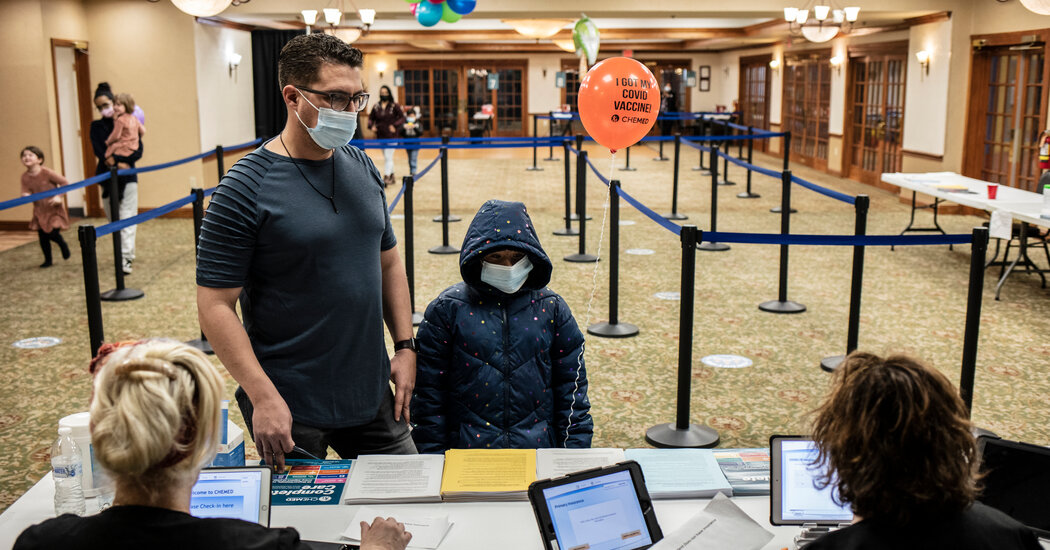A senior authorities well being researcher has introduced his retirement, accusing the Nationwide Institutes of Well being (NIH) of censoring his newest findings on ultra-processed meals.
Kevin Corridor made the announcement Wednesday on X, ending 21 years at NIH.
Given the Trump administration’s curiosity in his space of experience—how the meals setting impacts food regimen and food regimen impacts physiology—he mentioned he had hoped to broaden that analysis.
As a substitute, Corridor wrote, “I experienced censorship in the reporting of our research because of agency concerns that it did not appear to fully support preconceived narratives of my agency’s leadership about ultra-processed food addiction.”
An HHS spokesman denied that Corridor had been censored and accused him of “fabricating false claims.”
Corridor had written a letter late final month to Well being and Human Providers Secretary Robert F. Kennedy Jr. and HHS Director Dr. Jay Bhattacharya, based on CNN.
He requested to debate methods to advance analysis into the foundation causes of metabolic illness and raised issues about disruptions to his work and censorship of his findings. He mentioned he by no means obtained a response.
“We have been hobbled on several occasions with intermittent inability to purchase food for our study participants or obtain research supplies,” he informed Kennedy and Bhattacharya within the March 28 letter, which was obtained by CNN. “The future of our studies seems bleak given the inability to replace outgoing trainees who are the workhorses of our research.”
The letter continued: “I’ve also experienced incidences of censorship in my ability to discuss our research.”
Particularly, Corridor described an intervention by HHS relating to media protection of a examine printed March 4 within the journal Cell Metabolism.
Within the examine, his crew used mind imaging to research whether or not consuming ultra-processed milkshakes excessive in fats and sugar elicited related reactions within the mind to addictive medicine.
“Surprisingly,” they wrote, the shakes didn’t—at the very least not giant sufficient to point out up on PET scans.
HHS turned down an interview request from The New York Occasions to debate the examine, Corridor mentioned in his letter, and contacted the reporter to downplay the findings “because our data might be viewed as failing to support preconceived HHS narratives about ultra-processed food addiction.”
Kennedy has repeatedly pointed to ultra-processed meals as a wrongdoer within the nation’s declining well being and weight problems epidemic.
Corridor additionally mentioned his written responses to the reporter’s questions on his examine have been edited and submitted with out his OK. Copies of responses, which HHS denied had been edited, included a line suggesting the examine was small, with 50 individuals, based on CNN. Corridor mentioned that it was, in reality, the most important of its variety.
It wasn’t the primary time in his 21-year profession that he was informed to not current his findings about ultra-processed meals, Corridor informed CNN.
“There was some interference in a paper where I was told we had to change the content of the paper or I would have to remove myself as being an author,” he mentioned, including he withdrew to keep away from censoring a co-author who was not within the NIH.
The experiences, Corridor informed CNN, have been “quite worrying to me” and “made me think if I was to continue and experience this, I’m going to end up really hating my job.”
An HHS spokesperson referred to as Corridor’s model of occasions “disappointing.”
“Any attempt to paint this as censorship is a deliberate distortion of the facts,” the spokesperson informed CNN. “NIH scientists have, and will, continue to conduct interviews regarding their research through written responses or other means.”
Corridor mentioned on X that he determined to just accept early retirement to protect medical health insurance for his household. “Resigning later in protest of any future meddling or censorship would result in losing that benefit,” he wrote.
This isn’t the primary time a Trump administration has been accused of making an attempt to intrude with communication from its well being businesses, CNN recalled.
In 2020, a federal well being official mentioned they’d been pushed to alter language within the U.S. Facilities for Illness Management and Prevention’s weekly experiences in order to not undermine Trump’s political message in the course of the COVID pandemic.
Response to Corridor’s retirement was swift and powerful.
Marion Nestle, writer of the e-book “Food Politics,” referred to as his early retirement “a national tragedy.”
She described Corridor’s analysis linking ultra-processed meals to weight problems as among the many most vital diet research because the discovery of nutritional vitamins.
“I view his resignation under these circumstances as an act of extraordinary courage and scientific integrity,” she wrote on her weblog.
For his half, Corridor mentioned he would not know what he’ll do subsequent. In his letter to Kennedy and Bhattacharya and his put up on X, he harassed that he’d prefer to return.
For now, nevertheless, his experiences “have led me to believe that NIH may be a difficult place to continue the gold-standard unbiased science required to inform the needed transformation of our food supply to make Americans healthy.”
Extra data:
Harvard Well being has extra about ultra-processed meals and their well being results.
Quotation:
High NIH diet researcher quits, citing censorship beneath Kennedy (2025, April 18)
retrieved 18 April 2025
from https://medicalxpress.com/information/2025-04-nih-nutrition-citing-censorship-kennedy.html
This doc is topic to copyright. Aside from any honest dealing for the aim of personal examine or analysis, no
half could also be reproduced with out the written permission. The content material is supplied for data functions solely.




